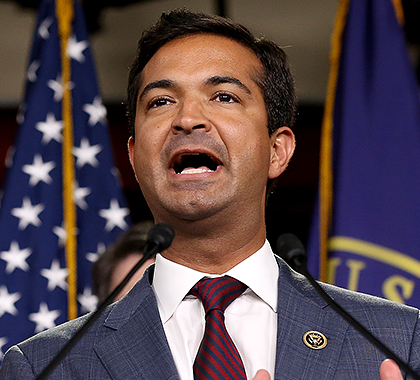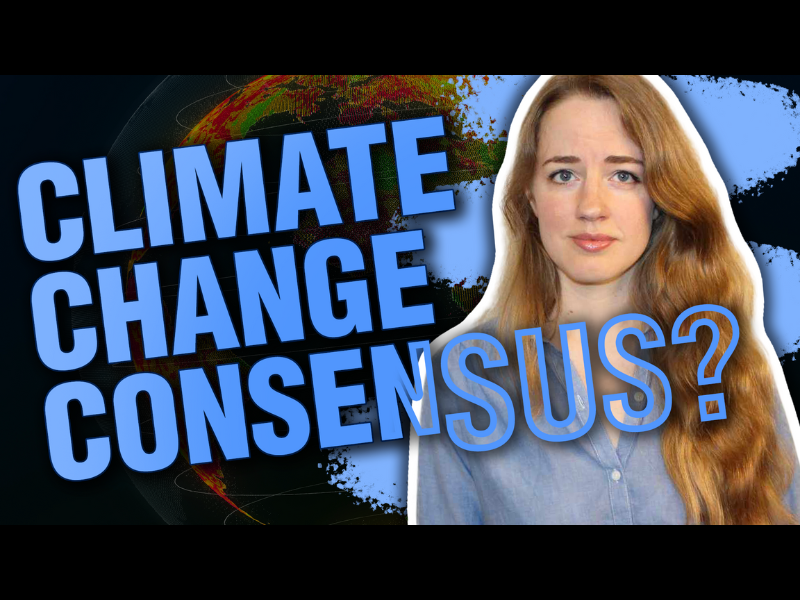ARLINGTON HEIGHTS, IL (November 7, 2018) — The idea that humans are the main driver of climate change – and that public policy must urgently move toward drastic economy-killing action to thwart supposed environmental disaster – took a huge hit in the midterm elections.
The Republican members of the Climate Solutions Caucus in the U.S. House of Representatives were the hardest hit. Ballot initiatives across America that would have thwarted the exploration and use of affordable fossil fuels also had a terrible night.
Of the 45 Republican members of the Climate Solutions Caucus, 11 members lost their seats, five retiring GOP members saw their seats filled by Democrats, and seven eked out re-election in races many would have won more easily. [NOTE: Four California House races in the caucus following this trend were too close to call at the time of this release. Full list of losers below.]
“The Republicans who joined the Climate Solutions Caucus made a huge mistake,” said Heartland Institute President Tim Huelskamp, Ph.D., who served in Congress from 2011 to 2017 and helped grow the Freedom Caucus in the House of Representatives. “We began the night with 45 Republican members of the Climate Solutions Caucus, and we will begin the next Congress with less than half that many. So much for trying to attract so-called ‘moderate’ voters by embracing the climate alarmist agenda.
“It’s telling that Carlos Cubelo, the Republican Co-chairman of the Climate Solutions Caucus, lost his election – as well as many incumbents who had otherwise stellar conservative credentials in favor of free markets,” Huelskamp said. “Embracing climate alarmism is anti-science and favors government direction over energy policy over the market.
“Republican voters know that joining a caucus with members of the radical environmental left means embracing unscientific dogma that would thwart President Trump’s agenda to make America the world’s leading energy producer,” Huelskamp said. “And the voters in their districts punished them accordingly.”
Meanwhile, ballot initiatives that were generously funded by environment activists – especially by billionaire Tom Steyer – did poorly on Election Day. Colorado voters rejected an attempt to ban almost all fracking for oil and natural gas. Washington state rejected a “carbon tax” (a tax on emissions of carbon dioxide). Voters in Arizona crushed a mandate to increase energy production from solar fields.
“Ballot issue after ballot issue to increase energy costs and make it harder to make America more energy independent failed,” said Huelskamp. “The global warmists will continue to fund these efforts because their coffers seem bottomless, but the voters know it’s a scam.”
Republican Members of the House Climate Solutions Caucus who lost:
|
Mike Coffman |
Colorado 6th |
|
Barbara Comstock |
Virginia 10th |
|
Carlos Curbelo (co-chair) |
Florida 26th |
|
Dan Donovan |
New York 11th |
|
John Faso |
New York 19th |
|
Randy Hultgren |
Illinois 14th |
|
Leonard Lance |
New Jersey 7th |
|
Erik Paulsen |
Minnesota 3rd |
|
Peter Roskam |
Illinois 6th |
|
Scott Taylor |
Virginia 2nd |
|
Kevin Yoder |
Kansas 3rd |
Republican Members of the House Climate Solutions Caucus who struggled to win or might lose:
|
Don Bacon (always close) |
Nebraska 2nd |
|
Chris Collins (+3,096, 99%) |
New York 27th |
|
Rodney Davis (+3,750; 60% 2012) |
Illinois 13th |
|
Peter T. King (+15,107; 100%) |
New York 2nd |
|
Mia Love (-4,714; 68%) |
Utah 4th |
|
Tom MacArthur (+2,315; 99%) |
New Jersey 3rd |
|
Claudia Tenney (-1,422, 100%) |
New York 22nd |
Republican Members of the House Climate Solutions Caucus who retired and had Democrats take their seat:
|
Ryan Costello |
Pennsylvania 6th |
|
Dave Reichert |
Washington 8th |
|
Ileana Ros-Lehtinen |
Florida 27th |
|
Mark Sanford |
South Carolina 1st |
|
Dave Trott |
Michigan 11th |





